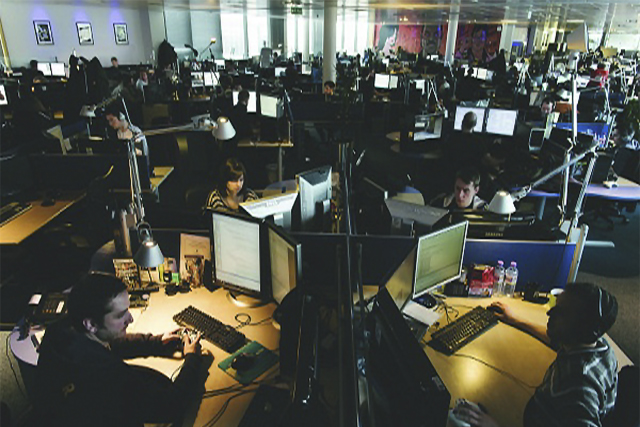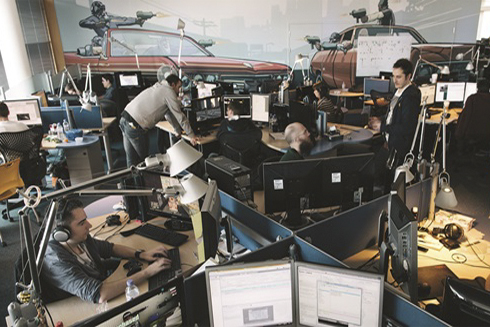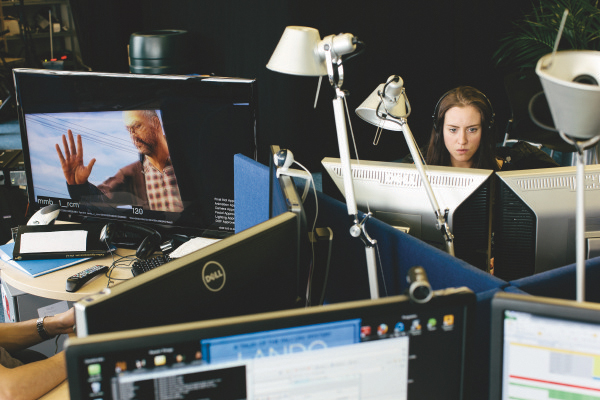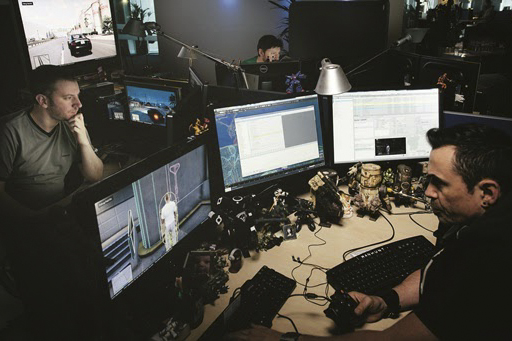Red Dead Redemption 2 will be the biggest, most ambitious game from Rockstar to date when it is released on October 26, but it’s an achievement that comes at a cost. In an interview with Vulture, studio co-founder Dan Houser talked about the game’s development, a process that has taken over seven years. It’s resulted in hundreds of thousands of animations and dialogue lines, and a 60 hour long main story. Houser also disclosed that in the final stages “we were working 100-hour weeks.”
While he later clarified that the strenuous work period only lasted for three weeks and involved just the senior writing team that he’s a part of, Rockstar among many other companies in the game industry have been accused of imposing crunch on its developers.
“We were all … told if we didn’t stay late then we were ‘naturally selecting’ ourselves, which simply means we would be fired.”
Working overtime, or crunch, as it’s more commonly called, has been part of the gaming industry for years. It’s usually a result of fast-approaching deadlines on ambitious projects that don’t have enough people working on them. The most intense periods typically occur during the months prior to a game’s release, and depending on where a studio is located or the type of contract developers are in, overtime may not be paid.
Poor compensation for long work hours is just one issue of many. Developers forced to crunch end up sacrificing weekends, time with their families, and their personal health in the process. And while speaking up may seem like the obvious solution, it’s a topic that’s difficult for people in the game industry to talk about openly, as it can affect their current or future job opportunities.
To ascertain the current state of crunch, Digital Trends reached out to various people in the game industry to find out what they’ve had to do to make the deadlines on our favorite games, stories, and massive virtual worlds.
An industry built on crunch
In the past, family members of developers have taken it upon themselves to vocalize their concerns anonymously. In 2004, a letter from the disgruntled spouse of an EA worker (now known to be Erin Hoffman) surfaced on a LiveJournal blog and a group of wives spoke about Rockstar Games’ working conditions prior to Red Dead Redemption’s release in 2010.
Dan Houser’s Vulture interview and subsequent statement incited a response from hundreds of developers, all taking to Twitter to share their own crunch stories, condemning the culture and how normalized the practice has become.
Game designer Byron Atkinson-Jones started working in UK and Canadian studios in 1996. He experienced terrible practices from several game companies he worked at until he founded Xiotex Studios in 2007.
“After a few weeks I wasn’t able to eat, sleep, or function.”
“In my first game job we were working insane hours, and then one night we were all burned out and decided to leave on time. It just so happened [that] one of the company’s directors decided to do a walk around the studio and found our room empty. It was around 7 p.m. at night,” Byron says. “The next day we were all [taken] into the meeting room and were told if we didn’t stay late then we were ‘naturally selecting’ ourselves, which simply means we would be fired. We all told the messenger to go forth and copulate.”
Later in his career, while working at a large studio in Vancouver, Byron explains that his team came up with the motto, “Let’s have a summer this year.”

“I asked what that meant. Apparently they pretty much worked continuously [the previous year] and had no time off. This was a team of over 80 people.”
While working for a company in the UK, he and his colleagues were instructed to go to the studio head’s office to “pick up some treats.” They found a bag with some t-shirts inside reading “we’re finaling,” which was the studio’s way of telling them “we’re in crunch.”
“Whether your overtime was actually accounted for or reimbursed was up to your lead.”
“As a contractor I didn’t stay longer than I needed to,” Byron said. “At the end of the project, one of the producers gave a speech and said it was great working with really dedicated people, and they were looking forward to having some of us back again — looking at those of us who didn’t do crunch.”
Social Media & Community Consultant Jared Rea talked about his very first job in the industry working as a QA tester at Atari. He quickly found himself consistently working over 12 hours a day with a two-hour commute to and from his job.
“Leave at 7AM, get home at 11PM. Every day, weeks on end.” he recalled. “After a few weeks I wasn’t able to eat, sleep, or function. I spent lunch breaks in my car, either trying to nap, or crying, or both. But I wanted to work in video games. That’s the dream. So I didn’t let anyone see and I did the work.”

Jared’s time at Atari also included a 24-hour shift required to meet a QA certification deadline that he was fortunate enough to only experience once while working at the company. His reward for the shift was the long ride home on no sleep the morning after.
An unsustainable lifestyle
Crunch periods aren’t always fully documented on record due to restrictions on time cards for employees. Jill Murray, a lead writer who’s worked on games such as Shadow of the Tomb Raider and Assassin’s Creed Liberation, talked about this on Twitter.
“I started dealing with mental health issues, something the managers there didn’t believe in.”
“One studio I worked for, you can’t input more than 40 hours on your time card, and then whether your overtime was actually accounted for or reimbursed was up to your lead who would decide on a percentage of overtime hours you were worthy of having recognized, after shipping.” she explained.
“In cases like this, it means there is no mechanism for understanding how much time actually went into the game, so no meaningful projections can be made to prevent crunch on the next one.”
Another developer, who asked to remain anonymous, tells us of their experience working in a game studio under contract. This type of work is a common situation for many developers. Unfortunately, contract renewals are never guaranteed and rights and benefits are usually very limited.
“We had rolling contracts and it wasn’t very verbal when they were renewed. Sometimes we would know either they had or were running out, leaving us on eggshells stressed about still having a job. I remember crying because I needed to renew my rent agreement and I still hadn’t found out if my contract had been renewed.”
“There was a system where if you did well you would get a promotion which was a $1.00 pay rise. I earned $7.50 an hour, and during my long time there I was never given that rise.”
Those who were willing to eat, sleep, live, and breathe the job were considered shining examples for everyone else to follow, an example that was unobtainable for most people. “I also started dealing with mental health issues, something the managers there didn’t believe in. I remember hearing them slagging off someone for requesting time off for stress, saying that they shouldn’t be in this industry. So I chose to try not to talk about it.”
The need to unionize for a better future and improve the current situation of thousands of developers is crucial.
Managers didn’t want to pay unapproved overtime, but would praise people who were still there late at night “completing work they hadn’t, or just playing games.” It all came to an unsustainable crunch period, which involved working seven days a week until 10 or 11 pm for three weeks. “I’m glad we were paid for the overtime for the most part, but at that point surviving on takeaway and energy drinks I could not stand it anymore.”
Better working conditions for all
Developers continue to talk about their experiences working in a pro-crunch culture even though there are currently no existing laws to protect both full-time and contract employees. The need to unionize for a better future and to improve the current situation of thousands of developers is crucial, and with organizations like Game Workers Unite, there’s a possibility for change.
As it stands, many people who want to take a stand against these practices are unable to because of the risk of losing their jobs. But the few that have spoken up have shined a light on the side of game development many of us didn’t know about, and hopefully, their bravery will raise the awareness needed to make crunch in gaming a grievance of the past.
Editors' Recommendations
- Red Dead Redemption is coming to Nintendo Switch and PS4 this month
- #RedDeadFuneral trends on Twitter as fans mourn loss of Red Dead Online
- Why the ‘games as service’ model is positive for video games
- Grand Theft Auto V finally coming to next-gen consoles this fall
- Game Pass adding Resident Evil 7, losing Red Dead Redemption 2







